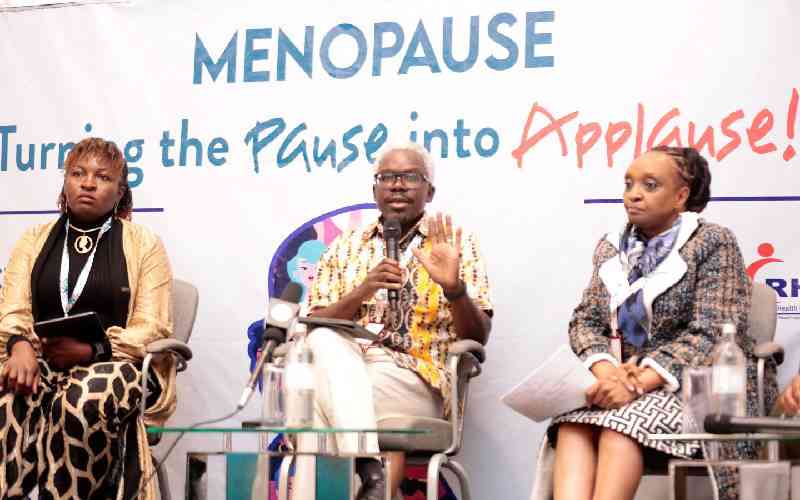Menopause is a natural stage of life that affects millions of women, yet in Kenya it remains one of the most neglected health issues. For years, discussions around menopause have been clouded by stigma, silence, and misinformation, leaving many women especially in rural areas and marginalized communities without the guidance and care they need.
Health experts and advocates are now calling for the urgent development of a clear menopause policy framework in Kenya. Such a framework would focus on affordable hormone replacement therapy, routine screening, mental health support, and workplace protections for women transitioning through menopause. The push comes at a time when awareness is growing that menopause is not just a private medical matter, but a public health and social issue that impacts families, workplaces, and national productivity.
For many women, menopause is a confusing and isolating experience. Symptoms such as hot flashes, mood swings, memory lapses, and sleep disturbances can severely affect quality of life. Without adequate preparation or support, women are left to navigate these changes alone. In many cases, healthcare providers themselves are not adequately trained to address menopause, further widening the gap in care.
The neglect of women’s health beyond childbearing years is evident in funding patterns. Currently, only a small fraction of health budgets is allocated to women’s health issues, despite the overwhelming need. Experts warn that the country is facing a huge resource gap thousands of percentage points short of what is required to meet the real demands of women’s health, including menopause care. Unless deliberate investment is made, women will continue to suffer in silence.
Integrating menopause into national health and workplace policies is seen as a vital step forward. Equality, dignity, and fair labour practices guaranteed in the Constitution must also extend to women experiencing menopause. Normalizing conversations about it, just as has been done with maternal health, is essential to breaking the stigma and dismantling the culture of secrecy surrounding it.
Communities, health systems, and policymakers need to recognize menopause as a natural transition, not a taboo subject. By preparing women with information, providing affordable care, and embedding menopause support into health and workplace policies, Kenya can transform how women experience this stage of life dignity, health, and productivity for millions.

